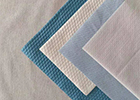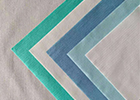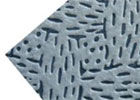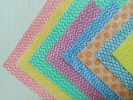EcoCare Nonwoven: A Sustainable Solution for Environmental Conservation
|
Applications of EcoCare Nonwoven Advantages of EcoCare Nonwoven |
Introduction
Introduction to EcoCare Nonwoven and its role in environmental conservation
EcoCare Nonwoven is a leading provider of sustainable solutions in the nonwoven industry. With a strong emphasis on environmental conservation, the company has been at the forefront of developing eco-friendly, innovative products that help reduce the impact on the environment. By using renewable resources and implementing sustainable manufacturing processes, EcoCare Nonwoven strives to create a greener and more sustainable future.
One of the key goals of EcoCare Nonwoven is to minimize the use of natural resources and reduce waste generation. The company has implemented various strategies to achieve this, such as using recycled materials in the production of their nonwoven products and minimizing the use of water and energy during the manufacturing process. Additionally, EcoCare Nonwoven has invested in research and development to find new ways of enhancing the environmental performance of their products.
Why sustainable solutions are crucial for tackling environmental issues
Environmental conservation is a pressing issue that requires immediate attention. The depletion of natural resources, pollution, and climate change are some of the challenges that our planet is facing. To address these issues, sustainable solutions are crucial.
Sustainable solutions ensure that the needs of the present generation are met without compromising the ability of future generations to meet their own needs. By adopting sustainable practices, we can minimize our ecological footprint and reduce the negative impact on the environment. This includes using renewable resources, reducing waste, and implementing energy-efficient manufacturing processes.
Sustainability also goes hand in hand with social responsibility. By supporting companies that prioritize environmental conservation, consumers can play a vital role in driving change. Small steps such as choosing products made from sustainable materials can have a significant impact on reducing waste and promoting a greener future.
In conclusion, EcoCare Nonwoven's commitment to environmental conservation and its focus on sustainable solutions demonstrate the importance of addressing environmental issues. By adopting eco-friendly practices and supporting companies that prioritize sustainability, we can contribute to creating a better and more sustainable future for ourselves and the generations to come.
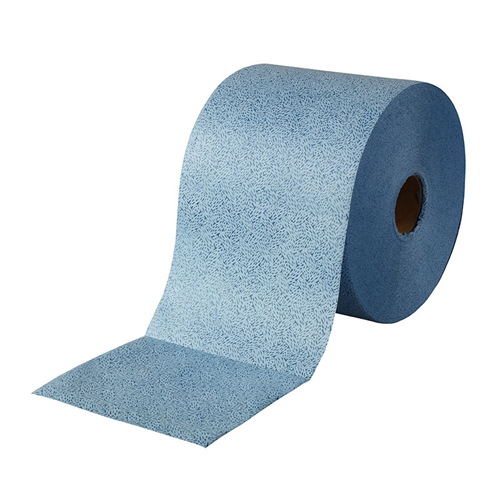
What is EcoCare Nonwoven?
Understanding the concept of nonwoven fabric and its eco-friendly properties
EcoCare Nonwoven is a leading provider of sustainable solutions in the nonwoven industry. The company specializes in the production of nonwoven fabrics that are both functional and environmentally friendly. Nonwoven fabric is a type of textile material that is produced by bonding or interlocking fibers together using mechanical, thermal, or chemical processes, rather than weaving or knitting. This results in a fabric that is versatile, durable, and has unique properties that make it suitable for various applications.
One of the key advantages of nonwoven fabric is its eco-friendly properties. Nonwoven fabric is typically made from renewable resources such as natural fibers, recycled materials, or biodegradable polymers. By using these sustainable materials, EcoCare Nonwoven reduces the dependence on non-renewable resources and minimizes the negative impact on the environment.
Benefits of using EcoCare Nonwoven in various industries
EcoCare Nonwoven offers a wide range of products that can be used in various industries, providing numerous benefits both to businesses and the environment. Here are some key advantages of using EcoCare Nonwoven:
• Sustainability: EcoCare Nonwoven products are made from renewable resources and recycled materials, reducing the carbon footprint and promoting a more sustainable approach.
• Durability: Nonwoven fabrics produced by EcoCare Nonwoven are known for their strength and durability, making them suitable for applications that require high-performance materials.
• Comfort: Nonwoven fabrics offer excellent breathability and comfort, making them ideal for applications in the hygiene and medical industries.
• Versatility: EcoCare Nonwoven products can be customized to meet specific requirements, allowing them to be used in a wide range of applications such as automotive, agriculture, filtration, and construction.
• Cost-effectiveness: Nonwoven fabrics are cost-effective compared to traditional woven or knitted fabrics, making them a preferred choice for businesses looking for sustainable and economical solutions.
In conclusion, EcoCare Nonwoven is a leading provider of sustainable solutions in the nonwoven industry. By using renewable resources, minimizing waste, and implementing eco-friendly manufacturing processes, EcoCare Nonwoven contributes to environmental conservation. The company's products offer numerous benefits in various industries, combining functionality with sustainability. By choosing EcoCare Nonwoven, businesses can make a positive impact on the environment while enjoying the advantages of high-quality, eco-friendly products.
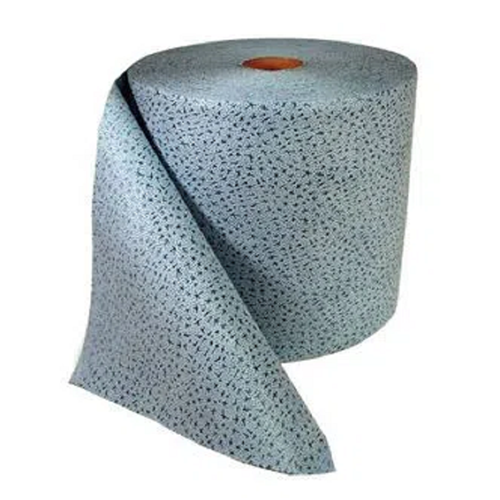
Applications of EcoCare Nonwoven
EcoCare Nonwoven in the fashion industry: Sustainable fashion and textile manufacturing
EcoCare Nonwoven plays a significant role in the fashion industry by providing sustainable solutions for textile manufacturing. The use of nonwoven fabrics in fashion has gained popularity due to their unique properties and environmental benefits. Here are some ways EcoCare Nonwoven is utilized in the fashion industry:
• Sustainable textile production: EcoCare Nonwoven produces nonwoven fabrics using renewable resources and recycled materials. This reduces the carbon footprint of textile manufacturing and supports sustainable fashion practices.
• Versatile design options: Nonwoven fabrics can be easily customized to achieve different textures, colors, and patterns. This versatility allows designers to create unique and innovative fashion pieces.
• Breathability and comfort: Nonwoven fabrics offer excellent breathability, making them suitable for creating comfortable garments. They provide enhanced moisture management and can be used in activewear, sportswear, and other apparel items.
• Lightweight and durable: Despite their lightweight nature, nonwoven fabrics are known for their durability. They can withstand regular washing and wear, making them ideal for long-lasting clothing items.
• Reduced waste: Nonwoven fabric production produces less waste compared to traditional textile manufacturing methods. This helps in reducing the amount of textile waste that ends up in landfills.
EcoCare Nonwoven in the healthcare industry: Biodegradable medical products
In the healthcare industry, EcoCare Nonwoven offers sustainable solutions for the production of biodegradable medical products. Nonwoven fabrics have unique properties that make them suitable for various healthcare applications:
• Hygiene products: EcoCare Nonwoven produces nonwoven fabrics that are used in the manufacturing of disposable hygiene products such as diapers, sanitary napkins, and wipes. These products are made from biodegradable materials, reducing the environmental impact.
• Medical textiles: Nonwoven fabrics are used in the production of medical textiles, including surgical gowns, surgical masks, and other medical garments. These fabrics provide a barrier against fluids and microorganisms while offering comfort and breathability for patients and healthcare professionals.
• Wound care products: Nonwoven fabrics are also utilized in the production of wound dressings, bandages, and other medical products used for wound care. The fabrics have excellent absorbency, moisture management, and antimicrobial properties.
• Disposable medical supplies: EcoCare Nonwoven produces nonwoven fabrics that are used in the manufacturing of disposable medical supplies such as bed linens, bedpads, and hospital gowns. These supplies help maintain a hygienic environment in healthcare facilities while being environmentally friendly.
In conclusion, EcoCare Nonwoven's sustainable solutions find applications in various industries such as fashion and healthcare. The use of nonwoven fabrics allows for the production of eco-friendly, durable, and versatile products. Whether it's creating sustainable fashion or manufacturing biodegradable medical products, EcoCare Nonwoven contributes to a more sustainable and environmentally conscious future.
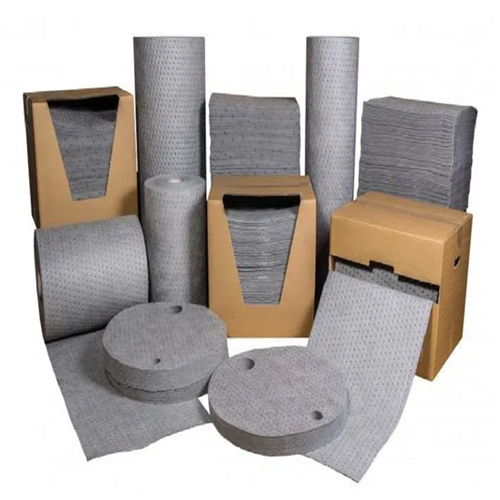
Advantages of EcoCare Nonwoven
EcoCare Nonwoven and reduced carbon footprint: A greener alternative to traditional materials
EcoCare Nonwoven offers numerous advantages over traditional materials, making it a greener and more sustainable alternative. Here are some of the key benefits:
• Reduced carbon footprint: The production of EcoCare Nonwoven involves the use of renewable resources and recycled materials. This significantly reduces the carbon footprint associated with textile manufacturing, making it a more environmentally friendly option.
• Energy-efficient production: The production process of EcoCare Nonwoven requires less energy compared to traditional textile manufacturing. This helps conserve energy resources and reduces the overall environmental impact.
• Water conservation: EcoCare Nonwoven's production process uses less water compared to conventional methods. This water conservation feature contributes to sustainable water management and helps in conserving this precious natural resource.
• Less waste generation: Compared to traditional textile manufacturing, the production of EcoCare Nonwoven generates less waste. This is because the nonwoven fabric production process does not involve weaving or knitting, which usually results in significant fabric waste. By reducing waste, EcoCare Nonwoven contributes to a more sustainable and resource-efficient production cycle.
EcoCare Nonwoven's water and energy conservation capabilities
In addition to reducing the carbon footprint, EcoCare Nonwoven also offers water and energy conservation benefits. Here's how:
• Water conservation: The production process of EcoCare Nonwoven requires less water compared to traditional textile manufacturing methods. This not only reduces the strain on water resources but also minimizes wastewater generation and the need for extensive water treatment.
• Energy efficiency: EcoCare Nonwoven's production process is designed to be energy-efficient. By using modern equipment and optimized production techniques, it requires less energy compared to conventional textile manufacturing methods. This energy efficiency helps in conserving energy resources and contributes to a more sustainable production process.
• Long lifespan and durability: EcoCare Nonwoven fabrics are known for their durability. Despite being lightweight, they can withstand regular washing and wear, resulting in longer product lifespans. This durability reduces the need for frequent replacements, saving energy and resources involved in production.
By utilizing EcoCare Nonwoven, industries can benefit from its reduced carbon footprint, efficient use of water and energy, as well as its durability. This sustainable and environmentally conscious approach helps create a greener future while maintaining high product quality and performance.
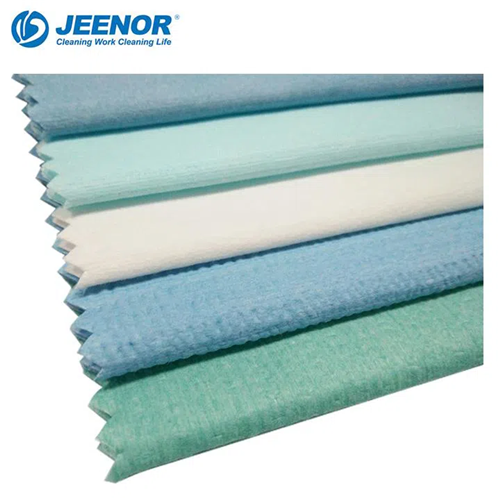
Sustainable Manufacturing Process
The eco-friendly manufacturing process of EcoCare Nonwoven
EcoCare Nonwoven is manufactured using an eco-friendly and sustainable process that significantly reduces waste generation and environmental impact. Here's a closer look at the manufacturing process:
• Use of renewable resources: EcoCare Nonwoven is made from renewable resources such as plant fibers and recycled materials. By utilizing these resources, the production process helps reduce the reliance on non-renewable resources and supports a more sustainable approach to manufacturing.
• Energy-efficient production: The production of EcoCare Nonwoven requires less energy compared to traditional textile manufacturing methods. Modern equipment and optimized production techniques are used to minimize energy consumption, resulting in a more energy-efficient process.
• Water conservation: EcoCare Nonwoven's manufacturing process is designed to minimize water usage. By using innovative techniques and reducing water-intensive steps, the process reduces water consumption and contributes to sustainable water management.
• Waste reduction: Compared to traditional textile manufacturing, the production of EcoCare Nonwoven generates significantly less waste. This is because the nonwoven fabric production process does not involve weaving or knitting, which usually leads to fabric waste. By minimizing waste generation, EcoCare Nonwoven promotes a more sustainable and resource-efficient production cycle.
Importance of reducing waste and pollution in the production of nonwoven fabric
Reducing waste and pollution in the production of nonwoven fabric is crucial for achieving a sustainable manufacturing process. Here's why it's important:
• Environmental impact: Traditional textile manufacturing processes, such as weaving and knitting, generate a significant amount of fabric waste. This waste often ends up in landfills, contributing to environmental pollution. By opting for nonwoven fabric like EcoCare Nonwoven, with its reduced waste generation, industries can minimize their environmental impact and contribute to a cleaner and healthier planet.
• Resource efficiency: Minimizing waste in the production of nonwoven fabric conserves resources such as water and energy. By reducing the need for raw materials and energy consumption, industries can operate in a more resource-efficient manner, promoting sustainability and reducing their ecological footprint.
• Long-term cost savings: Implementing waste reduction practices in nonwoven fabric production can result in long-term cost savings for industries. By optimizing production processes and minimizing waste, companies can reduce material and energy costs, leading to improved operational efficiency and profitability.
• Consumer demand: Increasingly, consumers are seeking environmentally friendly and sustainable products. By incorporating waste reduction practices in nonwoven fabric production, industries can meet this demand, attracting environmentally conscious consumers and gaining a competitive edge in the market.
By embracing sustainable manufacturing processes and reducing waste and pollution in nonwoven fabric production, industries can contribute to a greener future. EcoCare Nonwoven offers a viable solution with its eco-friendly materials, energy-efficient production, and reduced waste generation, making it an excellent choice for companies committed to environmental sustainability.
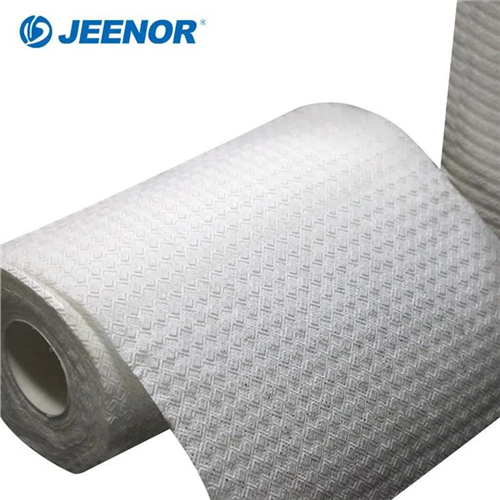
Future of EcoCare Nonwoven
Technological advancements and innovations in the development of eco-friendly materials
EcoCare Nonwoven is poised to benefit from ongoing technological advancements and innovations in the development of eco-friendly materials. Researchers and manufacturers are constantly exploring new ways to improve the sustainability and performance of nonwoven fabrics. Advancements in bio-based materials, such as biodegradable polymers and cellulose fibers, are expected to offer even more environmentally friendly alternatives for the production of nonwoven fabrics like EcoCare. These innovations will further enhance the eco-friendly profile of EcoCare Nonwoven and contribute to a more sustainable manufacturing process.
The potential for further applications and improvements in EcoCare Nonwoven
As the demand for environmentally friendly and sustainable materials continues to grow, the potential applications for EcoCare Nonwoven are vast. Currently, EcoCare is utilized in various industries, including automotive, healthcare, agriculture, and construction. However, ongoing improvements in its properties and performance could open up even more possibilities. For example, the development of fire-resistant or water-repellent variants of EcoCare Nonwoven could enable its use in additional sectors, such as protective clothing or filtration systems. These advancements would not only expand the potential market for EcoCare but also further contribute to reducing environmental impact in a range of industries.
With its eco-friendly manufacturing process, EcoCare Nonwoven is already making a positive impact on the environment. However, the future looks promising, with ongoing research and development expected to lead to even more sustainable alternatives and improved applications. Embracing these advancements will allow industries to meet the growing demand for eco-friendly products while promoting resource efficiency and reducing waste and pollution in nonwoven fabric production. The future of EcoCare Nonwoven is bright, and its continued development will undoubtedly play a crucial role in building a greener and more sustainable future.
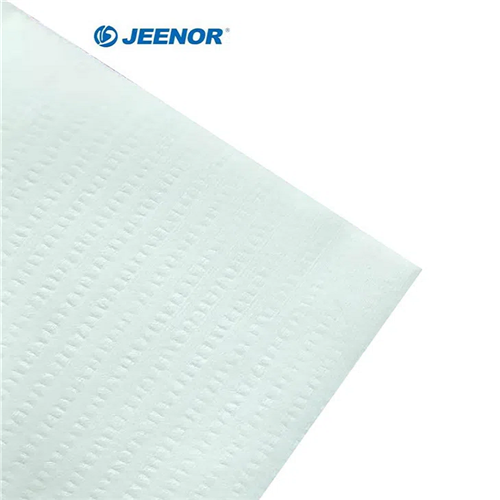
Conclusion
Summary of the benefits and potential of EcoCare Nonwoven for environmental conservation
EcoCare Nonwoven is at the forefront of the eco-friendly materials industry, benefiting from ongoing technological advancements and innovations. With the development of bio-based materials and improvements in sustainability, EcoCare is becoming an increasingly viable alternative to traditional nonwoven fabrics. These advancements contribute to a more sustainable manufacturing process and enhance the eco-friendly profile of EcoCare Nonwoven.
The potential applications for EcoCare Nonwoven are vast and ever-expanding. Currently used in industries such as automotive, healthcare, agriculture, and construction, ongoing improvements to its properties and performance could open up new possibilities. For example, the development of fire-resistant or water-repellent variants of EcoCare Nonwoven could allow for its use in protective clothing or filtration systems. These advancements not only expand the potential market for EcoCare but also contribute to reducing environmental impact in various industries.
Encouraging the adoption of sustainable solutions for a greener future
With its eco-friendly manufacturing process, EcoCare Nonwoven is already making a positive impact on the environment. However, the future holds even more promise. Ongoing research and development aim to lead to even more sustainable alternatives and improved applications for EcoCare. Embracing these advancements will allow industries to meet the growing demand for eco-friendly products while promoting resource efficiency and reducing waste and pollution in nonwoven fabric production.
In conclusion, EcoCare Nonwoven is well-positioned to play a crucial role in building a greener and more sustainable future. Its benefits, including its eco-friendly profile, potential applications, and ongoing advancements, make it a key player in the development of environmentally friendly materials. By adopting sustainable solutions like EcoCare Nonwoven, industries can contribute to environmental conservation and support the transition to a more sustainable world.




